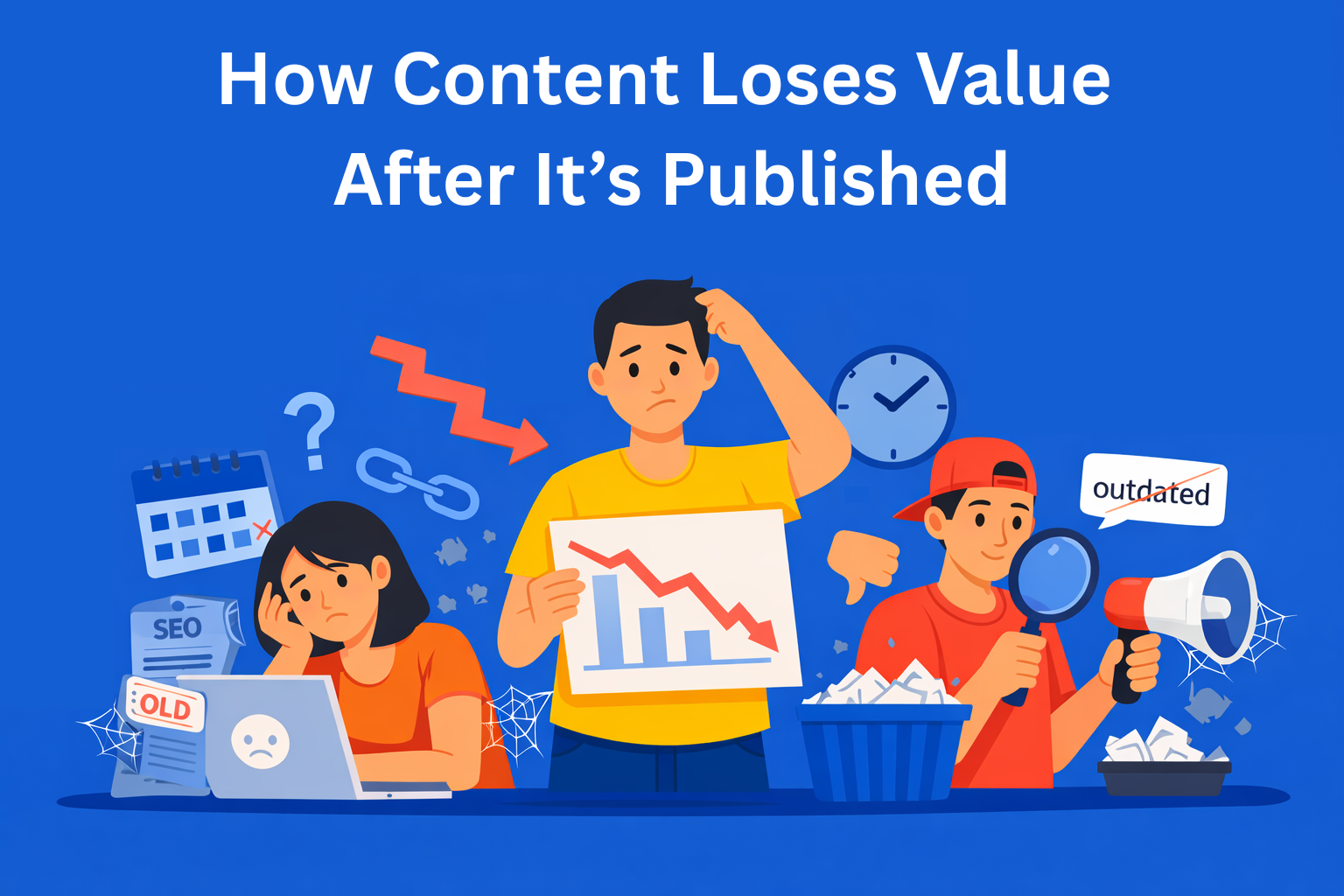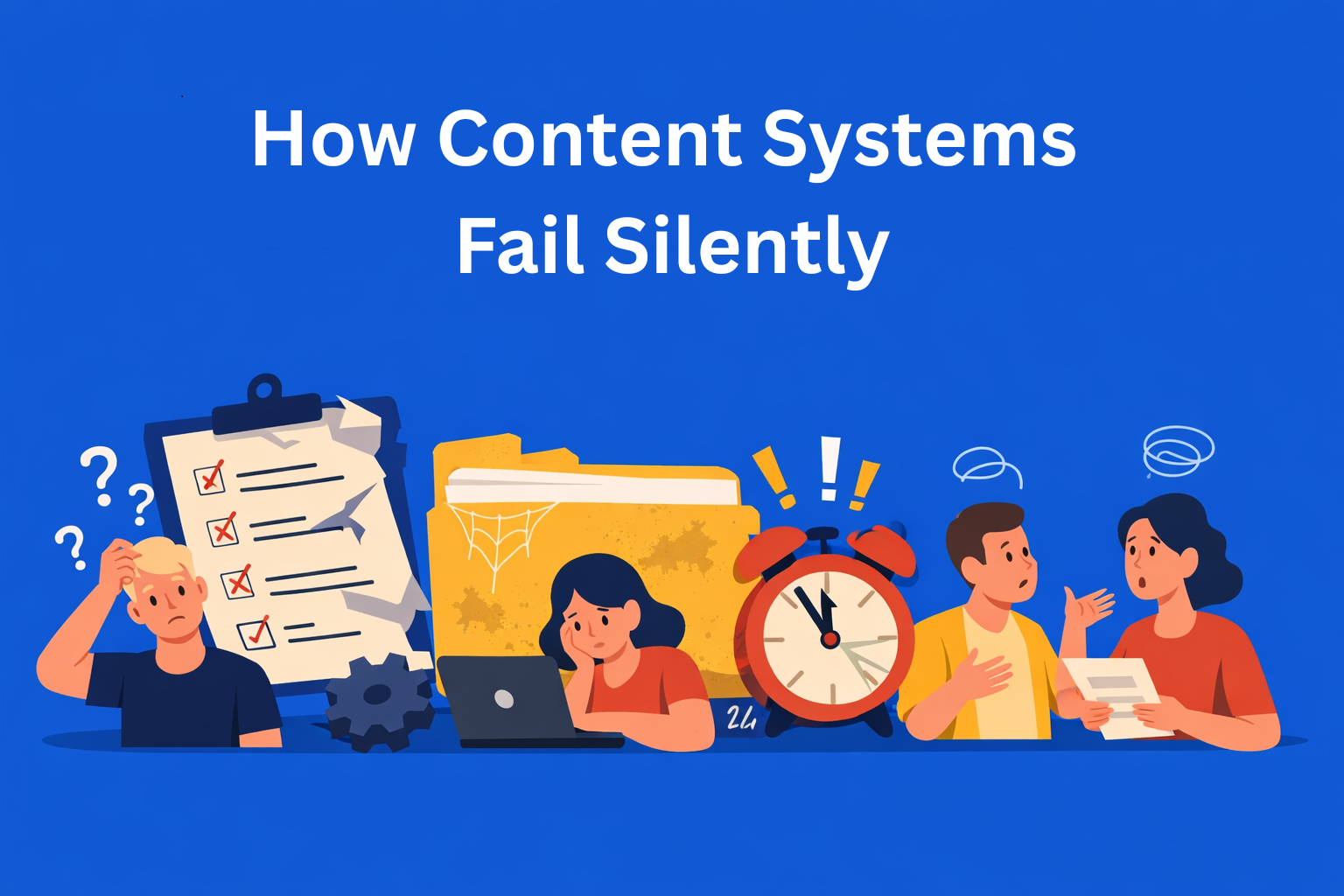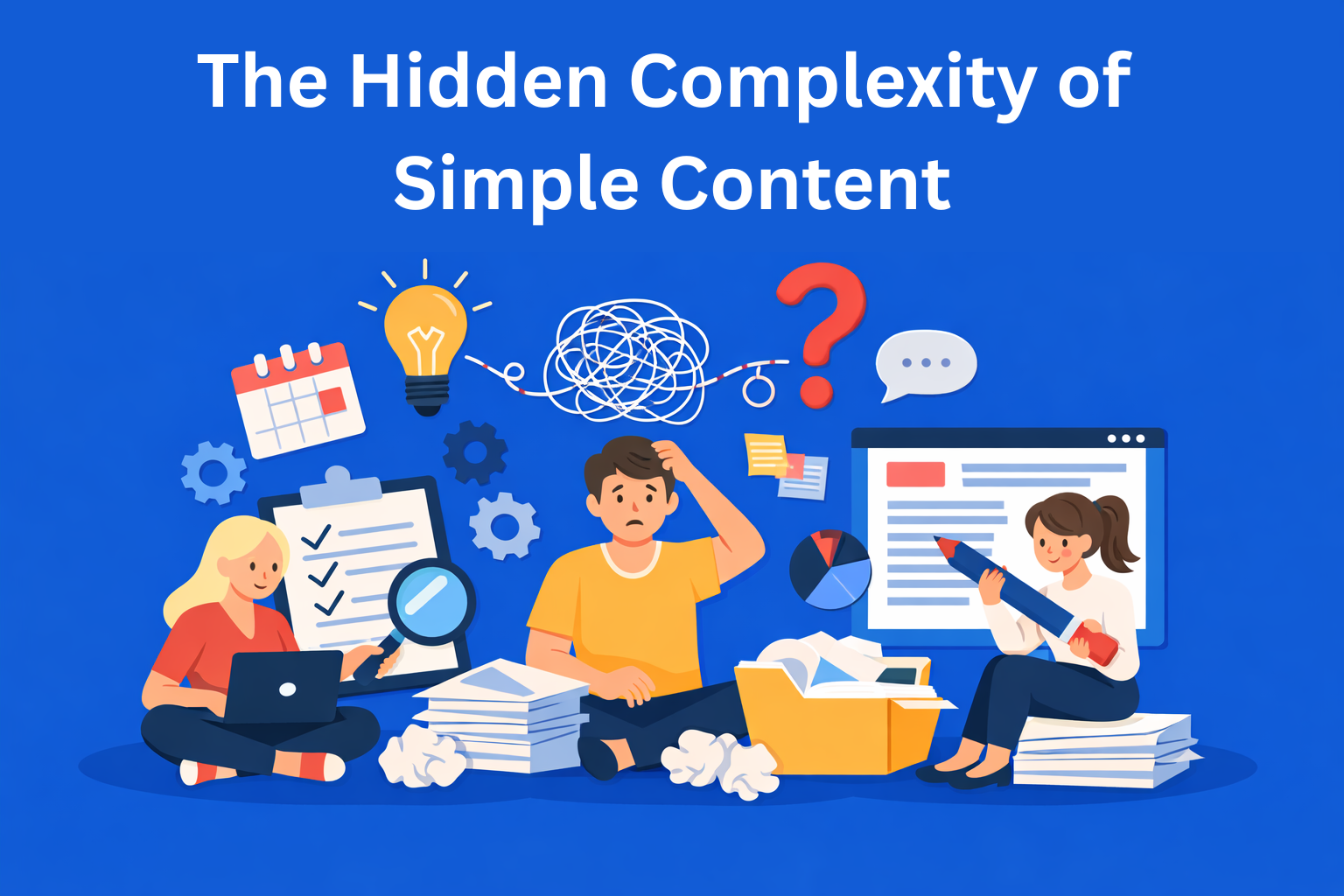What Is E-E-A-T and Why It Matters for SEO
E-E-A-T explains how Google judges the quality and trustworthiness of your website. Learn what Experience, Expertise, Authoritativeness, and Trust mean and how they can boost your SEO and help you build credibility online.

If you write content for the internet, manage a website, or work in SEO, you’ve probably heard of E-E-A-T. It might sound like another complicated term used by marketers, but in reality, it’s a simple concept. E-E-A-T describes how Google evaluates the quality of your content and how much it can trust you. In this article, we’ll explain in a clear and simple way what E-E-A-T means, why it matters, and how you can apply it to your website.
Key Takeaways
- E-E-A-T stands for Experience, Expertise, Authoritativeness, and Trustworthiness - Google uses these four elements to evaluate how reliable and high-quality your content is.
- Experience proves authenticity - show real, hands-on knowledge through examples, stories, or product use instead of theory.
- Expertise and authority build credibility - verified authors, accurate sources, and backlinks from reputable sites signal quality to both users and Google.
- Trust is the foundation - transparency, updated information, and secure site practices (like HTTPS) help users feel confident in your content.
- E-E-A-T strengthens SEO long term - consistent, expert-driven, and trustworthy content improves rankings and brand reputation over time.
What Does E-E-A-T Stand For?
E-E-A-T stands for:
- E - Experience
- E - Expertise
- A - Authoritativeness
- T - Trustworthiness
These four elements together show how high-quality and reliable your website content is. Google uses this framework to decide how much it can trust the information you provide to users. In short, the better you meet each of these four points, the higher you can rank in search results.
The Importance of E-E-A-T for SEO
E-E-A-T is important because Google wants to show users the most accurate and trustworthy information. If your text seems shallow, untrustworthy, or full of false information, it’s unlikely to rank high. This is especially true for topics in the YMYL (Your Money or Your Life) category - subjects that can affect someone’s health, finances, or safety.
So, if you write about health, money, insurance, or law, Google expects a high level of expertise and trust. But even if your site doesn’t belong to this category, E-E-A-T can still help you build a stronger reputation and attract more visitors.
Breaking Down Each Element
Experience
Experience means that your content shows you’ve actually interacted with what you’re writing about.
For example, if you’re writing a product review, Google wants to see that you’ve actually used the product. People trust content that comes from real experience. If you’re describing a trip, include personal photos and stories. If you’re writing about a tool, share your hands-on impressions. That’s what demonstrates real experience rather than just theoretical knowledge.
Expertise
Expertise refers to the author’s knowledge and skills.
If you’re covering a specialized topic, it’s helpful for readers to know that you’re qualified to talk about it. This could be a degree, certification, years of experience, or simply deep understanding of the subject. When Google sees that your article is written by someone with proven expertise, it increases your site’s credibility.
For instance, if a doctor writes about health, that clearly shows expertise.
Authoritativeness
Authoritativeness means that others consider you a reliable source of information.
Google measures this by checking how often your content is cited, how many reputable sites link to you, and how your name is mentioned online. If other professionals share your articles or quote you, your authority grows. The same goes for positive reviews, recommendations, and media appearances.
Trustworthiness
Trust is the foundation of everything.
If your website isn’t transparent, people will struggle to believe you. Google checks whether you have clear contact information, a privacy policy, a secure connection (HTTPS), and whether the information you share is accurate and verifiable. In short, everything you do should show that your website aims to help users, not mislead them.
How to Improve E-E-A-T on Your Website
Now that we understand what E-E-A-T means, let’s see how to apply it in practice.
1. Create Author Bios
At the end of each article, include a short author bio. Add the person’s name, occupation, relevant experience, and if possible, a link to their LinkedIn profile or portfolio. This helps readers know who stands behind the text and why they can trust it.
2. Use Reliable Sources
When presenting facts, always back them up with credible references. These could be scientific studies, official websites, or well-known organizations. For example, if you’re writing about health, cite the World Health Organization (WHO) or other relevant medical institutions.
3. Update Your Content Regularly
The internet changes quickly. Information that was accurate a year ago may no longer be valid. Review your content often and refresh it with new data. Google appreciates websites that show they care about accuracy and freshness.
4. Build Backlinks
Connecting with other reputable websites increases your authority. Write guest blogs, collaborate with experts, and participate in online communities. Every quality link to your site is a sign of trust.
5. Make Your Website Secure and Transparent
Use HTTPS and make sure your contact page and company information are visible. Transparency is key to building trust.
6. Encourage Reviews and Feedback
If you sell products or offer services, good reviews demonstrate your experience and knowledge. They show that people trust your brand. For example, when you sell a product and the buyer forgets to leave a review, you can kindly remind them to do so.
Common Mistakes to Avoid
Many people make mistakes thinking that simply adding keywords will improve their SEO. However, E-E-A-T isn’t about how much you write, but about how good your content is.
Here are some common mistakes to avoid:
- Copying content from other sites - Google easily detects this and can penalize your site by lowering its ranking. Always write original content and include your own opinion.
- Writing without research - articles full of errors and false information destroy trust. Always verify your facts using multiple sources before publishing.
- Hiding the author’s identity - if it’s unclear who wrote the text, readers are less likely to believe it. Always include the author’s name and at least basic information.
- Ignoring user experience - if a website is slow, hard to read, or confusing, visitors will leave quickly. Make sure your site is simple, clean, and easy to use on all devices.
In short, avoid being superficial and focus on giving real value to the reader.
Conclusion
E-E-A-T isn’t a magic formula but a simple set of rules that help make your content useful and trustworthy. When writing, think like a reader - would you trust yourself if you were on the other side of the screen? If the answer is “yes,” then you’re on the right track.
So, remember:
- Show experience through real examples.
- Demonstrate expertise through knowledge and references.
- Build authority through collaborations and citations.
- Earn trust through transparency and accuracy.
E-E-A-T is the foundation of every successful website and the key to long-term SEO success. Start small - review your content today and ask yourself how well it aligns with these principles. Every small improvement in the right direction can lead to big results.






